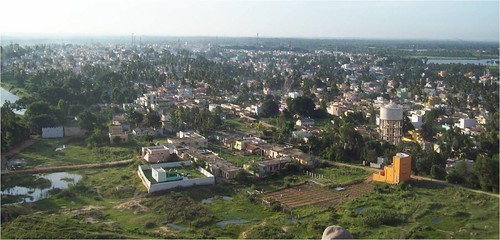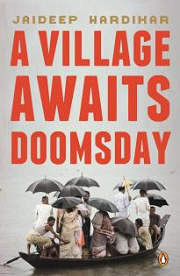Citizens' Rights and Duties
Catch Every Drop: The Water Warrior contest
Posted on 27 Feb, 2013 06:08 PMImagine there's no water
It isn't hard to do
Nothing to cook or clean with
And no flushing too!
Imagine all the people
Living life in vain
An assessment of the impact of MGNREGA on rural water security : Talks from the IWMI-Tata Annual Partners' Meet held at Anand in November 2012
Posted on 26 Feb, 2013 04:04 PMA month ago, India Water Portal tried to make sense of the numbers involved in India's flagship programme. Two-thirds of the works in progress in the current financial year (2012-13) were devoted to works linked with water - split nearly equally between water for domestic use and water for livelihoods.
Video documentary on the work done by Dr. Sudarshan for the upliftment of Soliga tribes in BR Hills, Karnataka- A webisode in Chai with Lakshmi
Posted on 20 Feb, 2013 11:47 AMSource of video: Chai with Lakshmi
Rights of adivasis over forest lands diminishes; their consent no longer mandatory for all development projects taken up on forest land - Roundup of the week’s news (February 11-17, 2013)
Posted on 18 Feb, 2013 11:18 PMAdivasis' rights over forest lands diminishes
Assessing the land use change and its impact on water resources: A study on the Mula and Mutha rivers catchment area in Pune
Posted on 17 Feb, 2013 09:11 PMLand use changes hydrologic system and have potentially large impacts on water resources. An assessment in an area with seasonally limited water availability and which is subject to rapid socio- economic development and population growth will provide an exemplary view on the local impacts of major recent developments in India. In this backdrop this paper analyzes past land use changes between 1989 and 2009 and their impacts on the water balance in the Mula and Mutha Rivers catchment upstream of Pune. The aim of the paper is:
- assess the land use changes between 1989/1990 and 2009/2010
- analyze the impacts of these changes on the long-term water balance components in the Mula and Mutha Rivers catchment upstream of the city of Pune.
Influence of anthropogenic contamination on fluoride concentration in groundwater: A study of Mulbagal town, Kolar district, Karnataka
Posted on 15 Feb, 2013 04:53 PMGroundwater contamination is a serious, but relatively ignored issue in the country. This contamination occurs in either through geogenic or anthropogenic means. Fluoride contamination is one such example of geogenic contamination that is widely found in the Kolar district of Karnataka. However, the fluoride levels in the town of Mulbagal are lower than those in the surroundings. Earlier, a study was conducted on the impact of pit toilets on the groundwater in the area. The present paper investigates the presence of any link between these two phenomena.
Studying climate change in India- A book review in Economic and Political Weekly
Posted on 12 Jan, 2013 10:44 PMThis article in Economic and Political Weekly is a review of the edited book Handbook of Climate Change and India: Development, Politics and Governance by Navroz Dubash. The author of the article states that the book is an important addition to the body of knowledge on the subject of climate change. The articles in the book are written from diverse view points by authors who are activists, researchers, diplomats, policymakers, and politicians.
AnRak Aluminium in Visakhapatnam, Andhra Pradesh: Another Vedanta in the making ? – An article in EPW
Posted on 10 Jan, 2013 10:35 PMThis paper in Economic and Political Weekly (EPW) by Patrik Oskarsson deals with the bauxite (aluminium) project which is very similar to the Vedanta project in Odisha and is coming up in Visakhapatnam district of Andhra Pradesh.
AnRak Aluminium, a company of the government of Rasal-Khaimah of the United Arab Emirates and Penna Cement of AP has secured approval for both an aluminium complex and the bauxite mines, but the final forest clearance for the mines is awaited.
The AnRak project has replicated the Vedanta model of first building the refinery and then setting up the mine. The mine is to be operated by the state government to circumvent the ban on non-tribal landownership.






